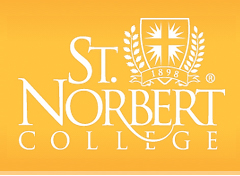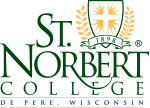
Title
Using DNA for Sex Determination in Red-Shouldered Hawks (Buteo Lineatus)
Files
Download Full Text
Description
Red-shouldered hawks (Buteo lineatus) are medium-sized woodland hawks listed as threatened with extinction by the Wisconsin Department of Natural Resources. These birds are threatened by the loss of ature habitats because mature forests are extremely valuable for commercial logging operations. Further threats include activities such as ATV riding and camping. Protected habitats are minimal and are also at risk. Hawks are extremely sensitive to disruption and because of these activities, the adult birds abandon the nest thus unsuccessfully raise their young, Figure 2. In this particular project, DNA was isolated from feathers found on the ground or in nests that are no longer inhabited. This allows for less disturbance to the habitats and is more effective than capturing and marking the bird itself because hawks are extremely
sensitive and smart. Given that male birds have two identical sex chromosomes (ZZ), whereas females are heterogametic (ZW), polymerase-chain-reaction (PCR) primers were used to amplify homologous sections of two conserved chromohelicase-DNA-binding (CHD) genes, located on sex chromosomes of all birds. The primers P0, P2, and P8 (Han, J., 2009) were utilized to amplifiy the sex chromosomes. The ultimate goal of this work is to determine the genetic structure, relatedness, and nesting behavior of red-shouldered hawks in Northeast Wisconsin through the use of non-invasively collected feather DNA.
Advisor
Dr. Adam Brandt, Biology
Publication Date
4-2021
Keywords
undergraduate, research, collaboration, biology, red-shouldered hawks
Recommended Citation
Sanders, Hailey and Beres, Bonnie Raechal, "Using DNA for Sex Determination in Red-Shouldered Hawks (Buteo Lineatus)" (2021). Student Presentations. 34.
https://digitalcommons.snc.edu/collaborative_presentations/34


